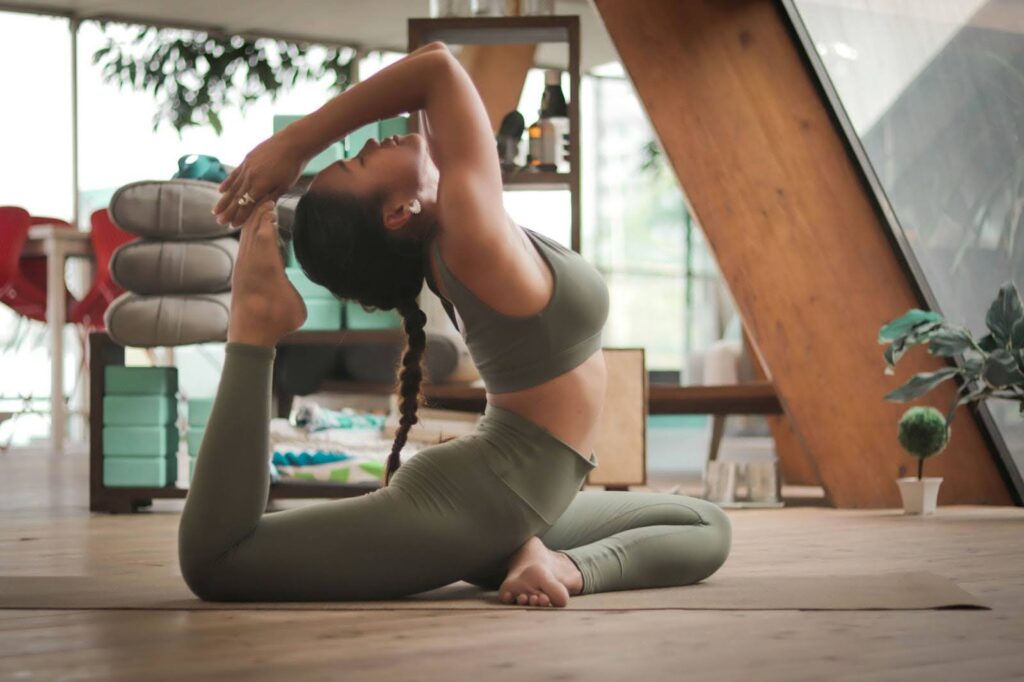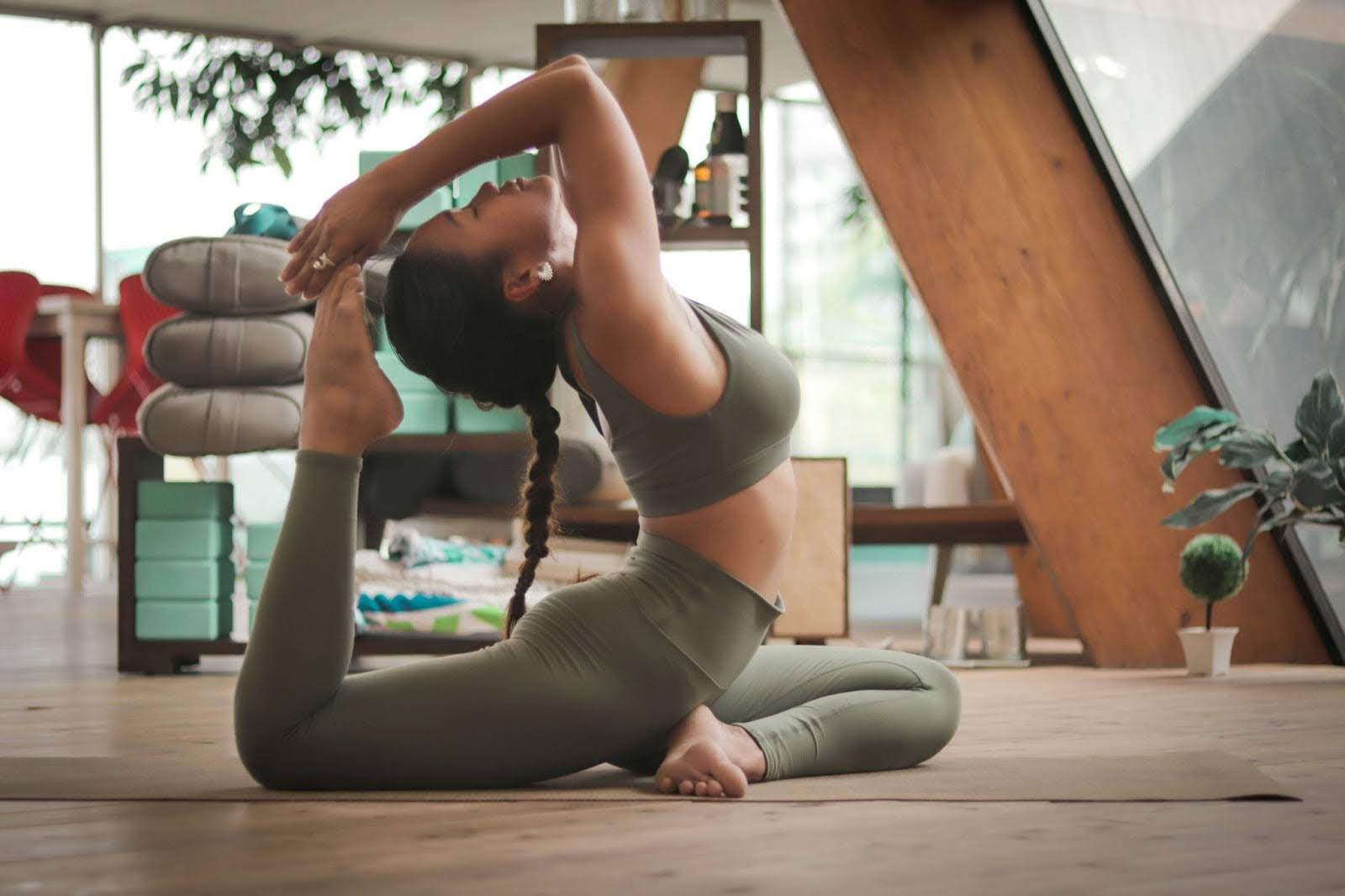
Introduction
An ancient practice, yoga has been around for centuries now. It originates in India and has popularity throughout the modern world. Yoga is not just a group of exercises but more so a holistic approach towards life that combines physical movement, breathwork and meditation. It benefits the practitioner’s mind and body equally, thus making it a powerful tool for overall well-being.
10 Surprising Benefits of Yoga for Your Health
Yoga can help you enhance flexibility and strength, it also helps you get sound sleep, reduce stress and much more. It is kinder on your joint health and can also improve your concentration and focus. Here are some benefits you need to know.
Enhances Flexibility, Strength, and Posture
One of the major reasons why people are attracted towards Yoga is it enhances your flexibility, strength and posture without being harsh on your body. It involves doing a variety of poses that are challenging but if done with patience, can lead to promoting a whole range of motion.
Boosts Mental Health and Reduces Stress
Yoga is known to have a direct impact on your mental well-being by elevating stress and anxiety. With the practice of yoga, you are introduced to breath control and mindfulness that promotes relaxation and release stress. Regular practice can reduce the stress hormone cortisol and activate the parasympathetic nervous system, responsible for the body’s rest and digestion response which improves your mental health too.
Improves Sleep Quality
World over there has been a trend of sleeplessness which is being observed, even in the younger generation. By incorporating yoga from a young age, sleep patterns and quality are known to have improved for many. The combination of a good diet plan and yoga can reduce stress and promote good on-time sleeping habits.
Aids in Weight Management and Detoxification
Yoga can help you burn calories and build muscle too, as the movements are designed in such a manner that every part of your body moves in tandem when you practise. It also increases metabolism and helps in eliminating toxins from the body, which leads to a healthier you.
Enhances Cardiovascular Health
Regular practice of yoga leads to lowering of blood pressure, reduces risk of heart disease and improves your overall heart health. Yoga can help you lower your heart rate while improving heart rate variability which is good for your heart health.
Promotes Better Breathing Techniques
One of yoga’s tenets is Pranayam which means breath control and teaches us proper breathing techniques. With this technique, you can improve your lung function and better your entire respiratory system. It also helps in relaxation and reduces stress and in turn, helps in supporting your nervous system too.
Increases Energy and Vitality
Yoga can help you be energetic and revitalise your life completely. With regular practice, you can see a marked improvement in your energy levels. It can help you combat chronic fatigue by stimulating your mind and body to promote a sense of vitality and rejuvenation.
Improves Balance and Coordination
Yoga can help you balance mentally and physically. It challenges your coordination to improve your proprioception – the body’s awareness of its position in space. Your muscles strengthen and will help you balance better while being aware of yourself. This can be reflected in the way you lead your life, too.
Supports Joint Health and Eases Arthritis Symptoms
Yoga is kinder on your joint health and can help in easing your arthritic symptoms. The stretches and movement help lubricate your joints and increase the production of synovial fluid. Regular practice will greatly improve your range of motion while reducing stiffness and releasing pain associated with the same.
Enhances Concentration and Focus
There is a strong emphasis on concentration and mindfulness in yoga which leads to a sense of deeper concentration and focus. You will benefit from this mindfulness attitude in other aspects of life, too by improved concentration and cognitive function.
Exploring Yoga Equipment
You can choose from different yoga styles that have been developed over the years. And as per the style or level of expertise you choose the essential yoga equipment. These equipments help you better your yoga practice. A mat and blocks are a must for beginners while advanced practitioners can choose from bolsters and straps too.
Understanding Different Yoga Styles
Hatha yoga is one of the most practised styles of yoga, with a focus on physical postures (asanas) and breath control (pranayama). You can also check styles like Bikram, Iyengar, Yin and Vinyasa too, they offer different variations and intensities of practice. Choose one that you align with and help you fulfil your goals and preferences.
Essential Yoga Equipment for Beginners
When you are about to start practising yoga for the first time, having a few essential pieces of equipment to enhance your practice can help you ease into it better. Something like a yoga mat is essential as it makes it easier to hold poses and prevent slipping. You can also add a yoga block that can be used to modify poses and provide support. It helps, especially if you have limited mobility or your body is not flexible enough. A yoga strap can be used to extend your reach and improve flexibility while doing stretches.
Advanced Tools for Experienced Practitioners
An advanced yoga practitioner can use a yoga wheel which will further help in stretching, improve balance and challenge your core strength. Another great tool is a yoga bolster. Think of it as a firm yoga cushion that provides support and helps you achieve proper alignment in both seated and lying-down poses.
These extra props can help you unlock new yoga skills and take your practice to the next level.
Debunking Common Myths About Yoga
Many myths surround the practice of yoga that at times deter people from forming a practice about this ancient art. Let’s debunk a few of these myths
Myth 1: You Need to Be Flexible to Do Yoga
One common myth that stops many of us from trying is that yoga needs to be flexible from the start. The truth is, it isn’t a prerequisite regular practice can help improve flexibility. It is designed for gentle stretches and lengthening your muscles to gradually increase your flexibility and range of motion.
Myth 2: Yoga is Only for Women
This misconception stems from societal perception and conforming to preconceived gender stereotypes. Yoga can be practised by people of all genders. Men can benefit greatly from yoga both physically and mentally.
Myth 3: Yoga Doesn’t Count as Exercise
Another popular misconception about yoga is that it doesn’t count as exercise and many believe it is just a form of relaxation and stretching. It is also believed that it doesn’t provide the same physical benefits as other exercise forms. Yoga is a form of physical activity that helps you improve your cardiovascular health, gain muscular strength and better overall fitness.
Myth 4:Yoga is a religious practice
While yoga originated in a spiritual context, it is not inherently religious. It can be practised by individuals of all faiths or no faith at all. Yoga focuses on the physical and mental benefits, and the spiritual aspects are optional for the practitioner.
Conclusion
All in all, we can safely say yoga offers a plethora of benefits for both physical and mental wellness. It can improve flexibility, assist in weight management, boost cardiovascular health, and promote relaxation, reducing stress and improving sleep quality. To reap the benefits of yoga, consistency is key. Lee Warehouse Auckland offers a wide variety of high-quality yoga equipment to help you get started or enhance your existing practice. Visit us today to explore our selection and embark on your transformative yoga journey!
Frequently Asked Questions
One can practise yoga 2 to 3 times a week in the beginning and gradually increase it 4 to 5 times a week. The frequency depends on your fitness levels, goals and schedule.
Yes, yoga can help you with anxiety and depression. The practice is an art of physical movement, breath control and mindfulness that helps reduce stress, promote relaxation and improve overall well-being. Regular practice can help in increasing self-awareness and provide a sense of inner peace. Yoga cannot replace professional treatment but can be used as a complementary approach to support mental health.
Yes, yoga can help in managing chronic pain. Gentle stretching, strengthening and relaxation practices, can help in alleviating the pain while improving flexibility and mobility. Yoga is beneficial for conditions like chronic back pain, arthritis and fibromyalgia. A well-qualified yoga instructor can guide you better here.
Yoga is generally known as a safe practice for most people, however, there are some risks. If one practises yoga with poor form or attempts to advanced poses without proper preparation it can lead to injuries. The most important aspect of yoga is to listen to your body respect your limitations and work at your levels.




